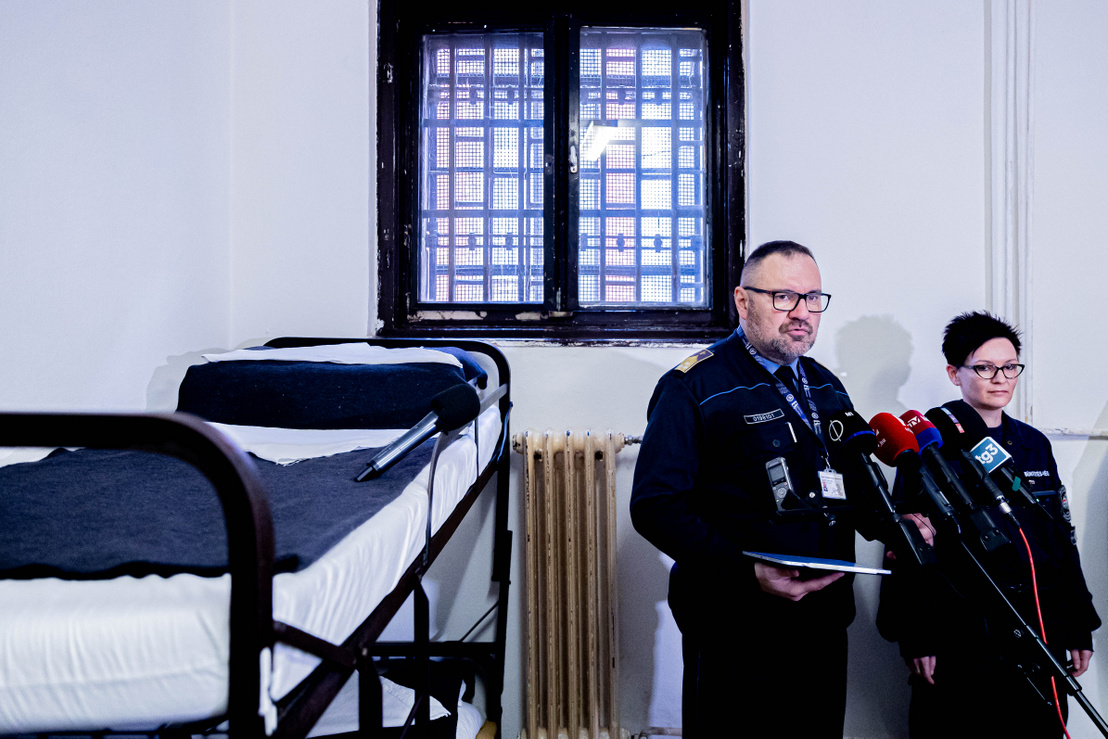The prison cell of suspected Antifa terror Ilaria Salis, an Italian citizen, features a flat-screen TV, a separate toilet and four bunk beds, according to the National Prison Service (BvOP). The press was invited to review the prison conditions of Salis over allegations she is being inhumanely treated, including by top Italian politicians.
Salis, a teacher from Milan, is facing 11 years in prison for her alleged role in a number of brutal attacks in Budapest that targeted seven victims in February of last year. Some of the victims, who the Antifa Hammer Gang group thought were far-right activists but were actually civilians who had nothing to do with far-right activism, suffered life-changing injuries.
Video of the attacks went viral on social media last year. It shows a mob beating their victims with hammers and other blunt objects on the streets of Budapest.
On Monday, the first defendant in the case, Ilaria Salis, smiled as she arrived for the preparatory trial meeting regarding the Antifa attacks. The woman was led before the judge in leg shackles, a scene that shocked not only her family but also the Italian government. The scandal is known to have reached the level of the foreign minister, and Georgia Meloni even consulted Viktor Orbán regarding the circumstances of her detention. Earlier, one of Salis’ former cellmates had complained to the Italian media about the deplorable conditions.
Subsequently, the prison service issued a statement denying the woman’s allegations and later invited the press to Salis’ cell in the BvOP’s Gyorskocsi Street facility. Colonel Mihály Kovács, the head of the BvOP’s Detention Affairs Service, said that under normal circumstances there are not as many people in the cells as there are now. The eight-capacity room was filled to overflowing with about 30 members of the press, including representatives of Italian television.
[pp id=106160]
The colonel said that the conditions are not hotel standard, but it is a prison after all.
The press tour included a visit to the cell, where inmates keep their bedding in military order on the four bunk beds and there is a flat-screen TV, which allows the inmates a list of things to watch. She also has access to food that meets her special dietary needs.
Detainees have the option of being contacted live, by phone or video call, and can even seek the help of a psychologist if necessary. As mentioned, there are no language barriers.
“Everyone can expect to find someone who speaks their language in their cell,” said Kovács.






